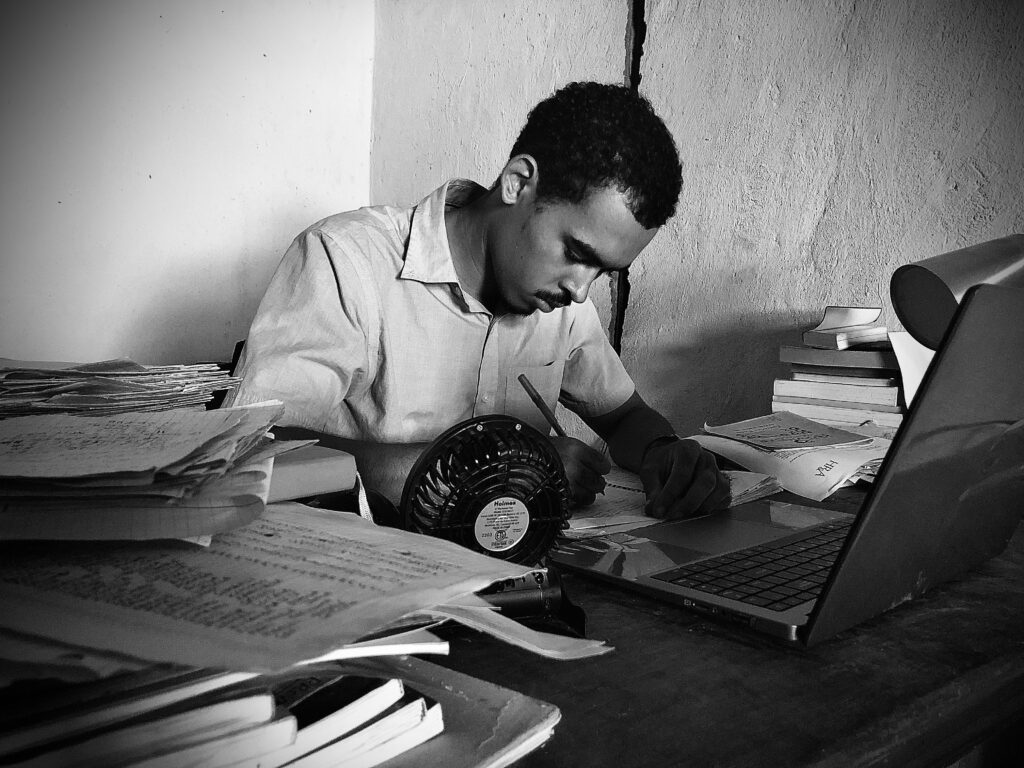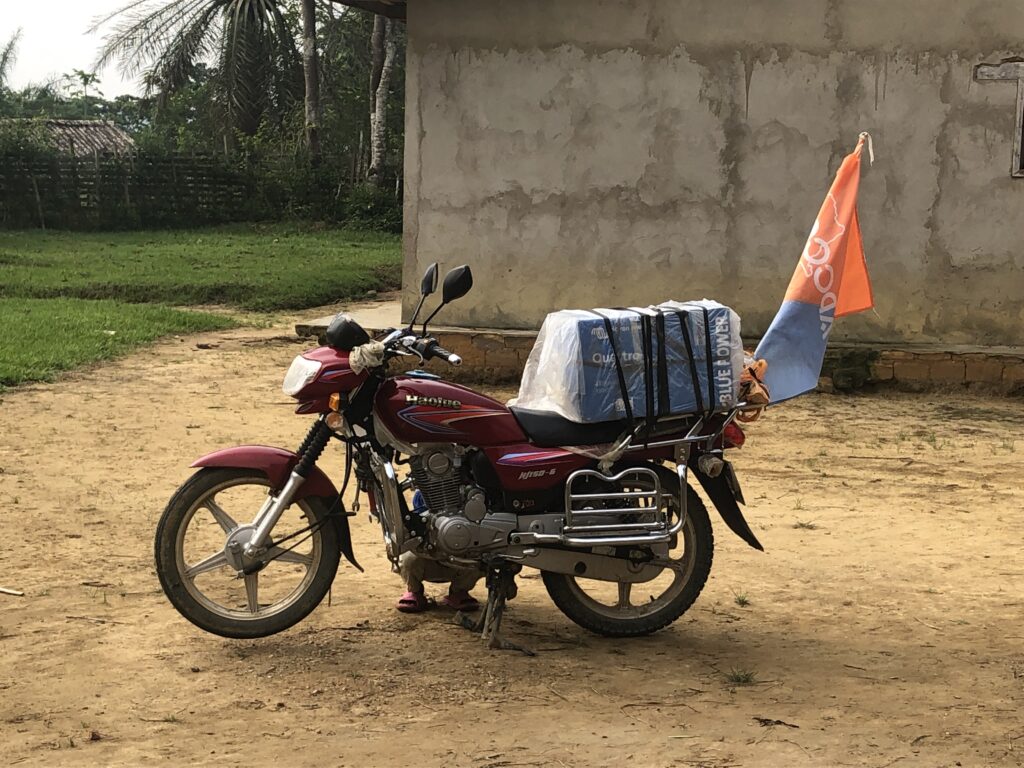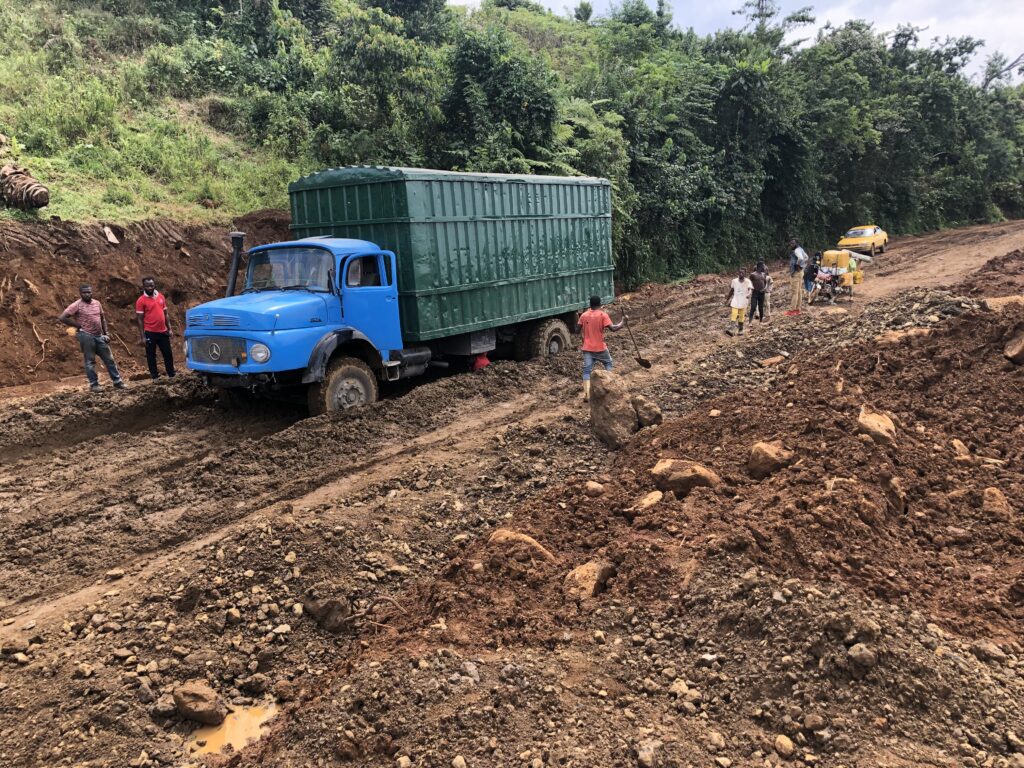3 Lessons Learned from the Hardest Job Search Ever

On Friday, I worked my 60th day as a Research Analyst for a nationwide urban planning and real estate consulting firm. Getting this job was one of the hardest things I’ve ever done.
Fresh out of college, I lived for a full year in the Democratic Republic of Congo, teaching English to over 100 students at my grandparents’ village school. While there, I spent about five hours a day teaching, preparing lessons, and grading. Outside of failed gardening attempts, three-hour church services, and occasional jungle exploration, I also spent hours nearly every day looking for a job offer to return to the U.S. with.
We were in a rural village with upload speeds measured in kilobytes, electricity powered by solar panels, and wifi that cut out if it rained too hard (tough deal in a rainforest). I was also going for jobs I had limited experience with. I really wanted something at the intersection of research, policy, and impact that would teach me hard skills and challenge me. I looked for consulting firms or for research or policy jobs that would be rigorous and formative.
From September to April, I applied to close to forty firms and got rejected with no interview from most of them. Looking for job openings and submitting applications was a disaster because pages would take minutes to load (sometimes LinkedIn would take over an hour), the wifi would randomly drop, and many firms preferred entry-level candidates they had met before or that had upcoming graduation dates. Many online forms took me hours to fill out. And I suspect my resume was flagged because I graduated in 2022. Maybe also for coming from an IP address located in the Congolese countryside.
I found the posting for my current job on February 1, the day it was due. I immediately noted that it is a consulting firm quite different from others I had seen—it is much more mission-oriented and focused on creating better places for people to live and work through research, policy, and urban development. I wasn’t sure I was qualified for the position, but I stayed up past midnight curating my application and sent it off.
At this point, I was very tired from struggling against technological challenges and my string of rejections. Henry had suggested I take a break and start looking again in May, but I wanted to press forward and do everything in my control to find something good. That’s when several things outside my control happened. In mid-February, as I sat in the office grading English homework, lightning struck our power system a mere twenty yards away. It was the loudest sound I’ve heard in my life and was a major blow to morale—we’d have no wifi, no use of our computers, and would have to charge our phones with car batteries for weeks. Later, when power was restored, more disaster struck: I spilled water on my computer and fried its circuitry.


That was mid-March, and I thought there was no hope. I seriously, if not a bit melodramatically, wondered if I was meant to get a job at all. But it was just days later that I heard back from my current firm with an invitation to perform a skills assessment. In the coming weeks, I also received interview offers from two other companies, and soon my cup of opportunities began to overflow. Stress and challenges remained. Interviews had to be scheduled at night to accommodate time zone differences (and no sun means risk of no power), and the wifi dropped while I spoke with Principals, Directors, and Partners. During one interview, a downpour on my tin roof made it all but impossible to hear what the interviewer was saying. However, after eight months, I received two job offers in the same week.
The following are three lessons I learned from this experience:
1. Personal connection matters. I was someone who made fun of networking as kissing up and disingenuous. However, I learned that making a good personal impression is extremely important and can lead to opportunities. I got four first-round interviews and three of them were from firms where I had previously talked with someone to express my interest in the company.
2. Some rejections are for the best. Halfway through the job search, I was rejected after a final round interview. At that point, I was tired of rejection, and even though the firm was not an ideal place for me, I wanted the offer just so I could be done looking. In retrospect, I’m glad I got rejected because it was not the best fit, and I ended up finding better opportunities later. But, at the time, I didn’t know those opportunities were coming, so the rejection was a blow.
3. Sometimes, you can’t plan ahead too much. I think this is the most important lesson I learned. It’s kind of a cliche one. I worried a lot during undergrad that I should study something with a clearer job path. In the end, I majored in sociology because it interested me, but I didn’t think it positioned me very well for jobs. Also, my mindset going to Congo was that it was something I wanted to do despite my career goals, not because of them. However, in the end, I enjoyed studying sociology (with a few other fun or skill-building classes here and there) and it formed my outlook, interests, and skills. Also, before going to Congo, I didn’t know urban planning consulting existed, so I could not have planned to find this job—I never would have looked! I happened to find it while in Congo, and being there also helped me to stand out as a candidate rather than hurting me.
Doing what you’re good at, what you enjoy or interests you, and what you see as valuable is the best advice I can give to someone in my shoes in college. Many people gave me similar advice, but I doubted them because it did not make sense from my vantage point. Some people, like pre-med students, know exactly what they want to do and have specific steps they can take to achieve it, i.e. taking pre-med courses, taking the MCAT, going to medical school, etc. That was not the case with me, and I worried a lot about how things would go. However, by doing things I thought were interesting and valuable, I formed ideas about what I liked and could see myself doing. I went to Congo because I thought it would be valuable for me and for others, and I started looking for consulting jobs because I thought they could position me well for the future. Both choices unexpectedly led me to where I am now—a particular kind of consulting firm that aligns more with my interests and goals than I knew existed. Looking forward, I had a different picture in my head of how things would go. Looking back, I’m glad I made the choices I did. And, ultimately, the hardest job search ever was worth it.
For more on challenges from my year in Kitindi, check out “08. To Be Sick in Kitindi”
Hi Kwabene, I really enjoyed your post. Reading about your work in Congo while applying for jobs is really inspiring. It’s also something I struggle with – at some level I want to work for community back in India (my hometown) and on another I want to make a career in the US. My hope is to find balance such that one doesn’t take away from the other. As someone struggling with the job market right now, I’d love to connect with you and get any advice you might have for me.